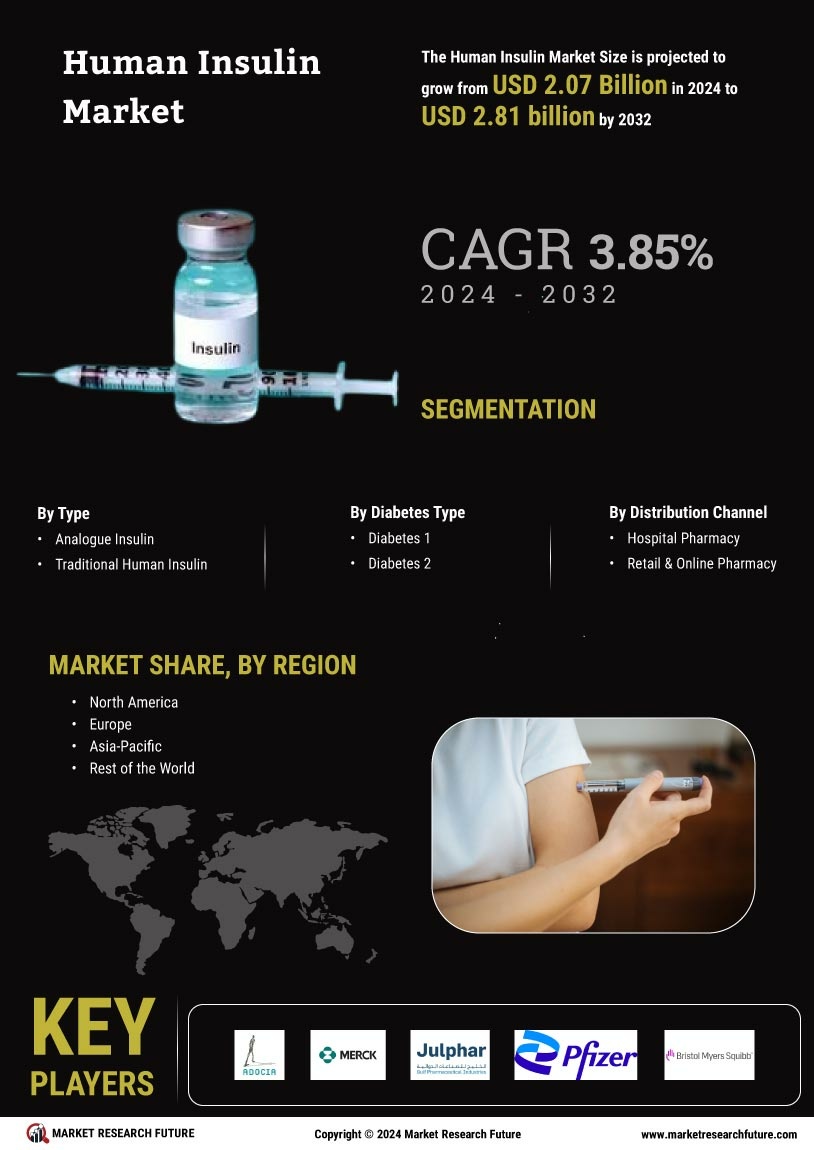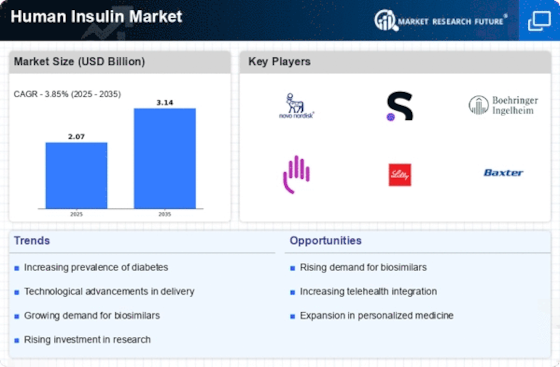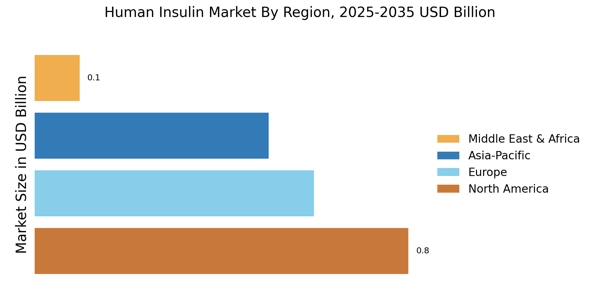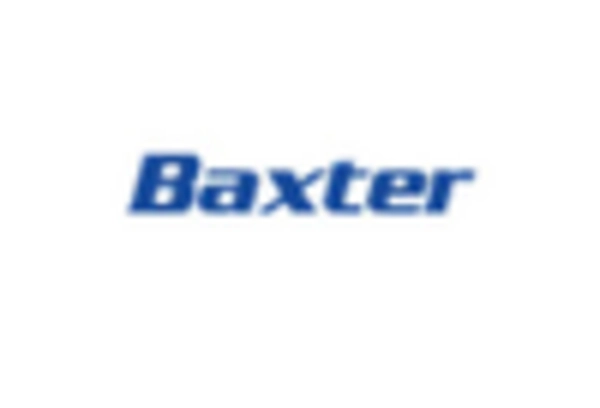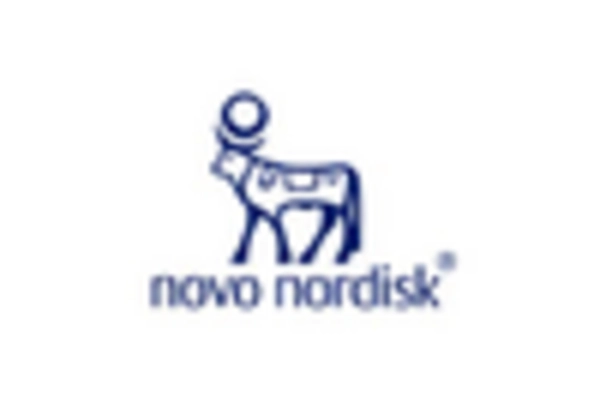Rising Prevalence of Diabetes
The increasing incidence of diabetes worldwide is a primary driver for the Human Insulin Market. According to recent statistics, the number of individuals diagnosed with diabetes has surged, with estimates suggesting that over 500 million people are currently living with the condition. This rise is attributed to various factors, including sedentary lifestyles, unhealthy diets, and genetic predispositions. As diabetes becomes more prevalent, the demand for effective insulin therapies escalates, thereby propelling the Human Insulin Market forward. Furthermore, the World Health Organization has projected that diabetes will become the seventh leading cause of death by 2030, underscoring the urgent need for accessible insulin treatments. Consequently, pharmaceutical companies are likely to invest heavily in research and development to meet this growing demand.
Increased Awareness and Education
There appears to be a growing awareness regarding diabetes management and the importance of insulin therapy, which significantly influences the Human Insulin Market. Educational initiatives by healthcare organizations and governments have led to better understanding among patients about the necessity of insulin for managing diabetes. This heightened awareness is likely to result in more individuals seeking medical advice and treatment options, thereby increasing the patient population reliant on insulin. Reports indicate that countries with robust diabetes education programs have seen a marked increase in insulin prescriptions. As patients become more informed about their health, the demand for various insulin formulations, including rapid-acting and long-acting insulins, is expected to rise, further driving the Human Insulin Market.
Regulatory Support for Insulin Products
Regulatory bodies are increasingly supporting the development and approval of new insulin products, which is a vital driver for the Human Insulin Market. Streamlined approval processes and incentives for biosimilar insulin products are encouraging pharmaceutical companies to innovate and expand their product offerings. For instance, the introduction of expedited pathways for biosimilars has led to a surge in the availability of affordable insulin options, making treatment more accessible to patients. This regulatory environment not only fosters competition but also drives down prices, benefiting consumers. As more biosimilar products enter the market, the Human Insulin Market is likely to experience significant growth, as patients gain access to a wider range of insulin therapies.
Aging Population and Chronic Disease Burden
The aging population is contributing to an increased burden of chronic diseases, including diabetes, which is a crucial factor for the Human Insulin Market. As individuals age, the risk of developing type 2 diabetes rises, leading to a higher demand for insulin therapies. Projections indicate that by 2030, the number of older adults with diabetes will reach unprecedented levels, further straining healthcare systems. This demographic shift necessitates the development of tailored insulin solutions that cater to the unique needs of older patients. Additionally, the rising prevalence of comorbidities among the elderly population may complicate diabetes management, thereby increasing the reliance on insulin. Consequently, the Human Insulin Market is poised for growth as it adapts to meet the needs of this expanding patient demographic.
Technological Innovations in Insulin Delivery
Technological advancements in insulin delivery systems are transforming the Human Insulin Market. Innovations such as insulin pumps, continuous glucose monitors, and smart pens are enhancing the convenience and effectiveness of insulin administration. These devices not only improve patient compliance but also allow for more precise dosing, which is crucial for effective diabetes management. The market for insulin delivery devices is projected to grow significantly, with estimates suggesting a compound annual growth rate of over 10% in the coming years. As technology continues to evolve, the integration of digital health solutions, such as mobile applications for tracking glucose levels, is likely to further enhance the user experience. This trend indicates a shift towards more patient-centric approaches in the Human Insulin Market.
